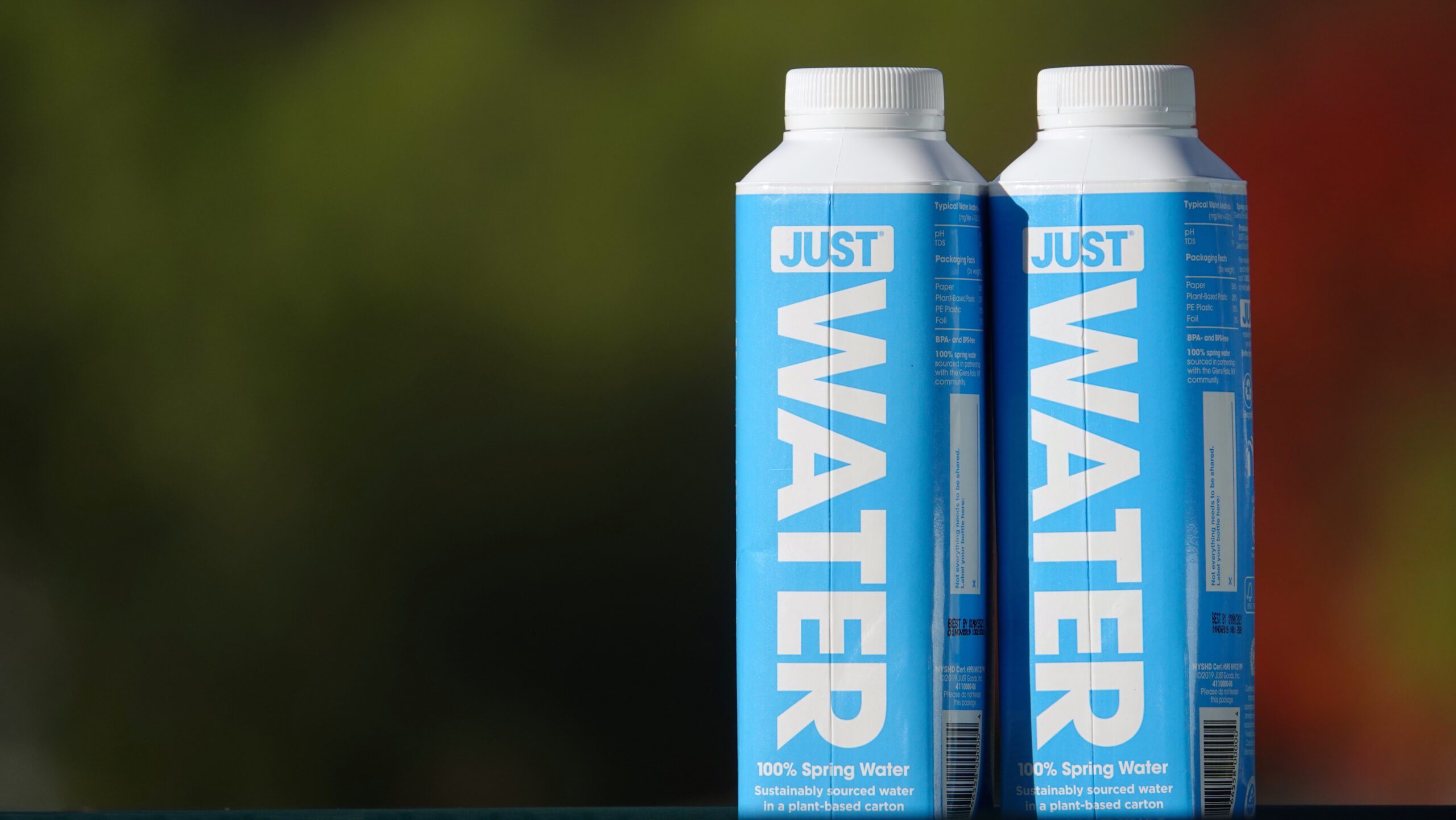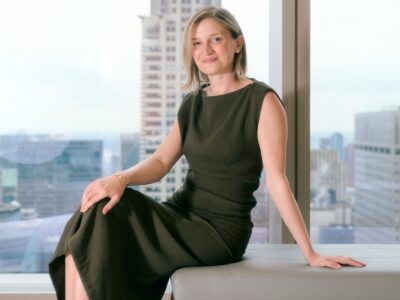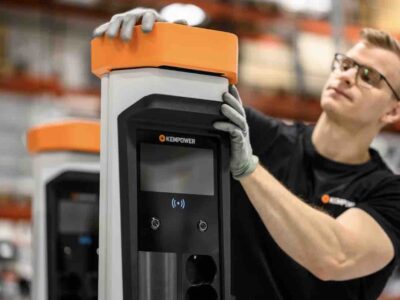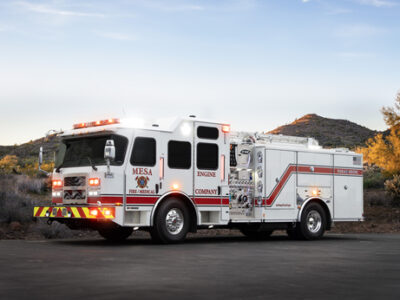Jaden Smith could have easily settled into a life of making movies and music. The son of superstar Will Smith and Jada Pinkett Smith, Jaden won awards at the age of eight for his performance in The Pursuit Of Happyness and collaborated with Justin Bieber on the top ten hit “Never Say Never” when he was 12. However, Jaden had more ambitious goals, and picked a path that involved entrepreneurship and philanthropy as much as (if not more than) music and films.
Jaden was just reaching his teen years when he decided to do something about plastic pollution after seeing the litter cluttering beaches and oceans. He was still in his teens in 2015, when he co-founded the eco-conscious JUST Water, a beverage brand that has found success in the marketplace while helping the environment.
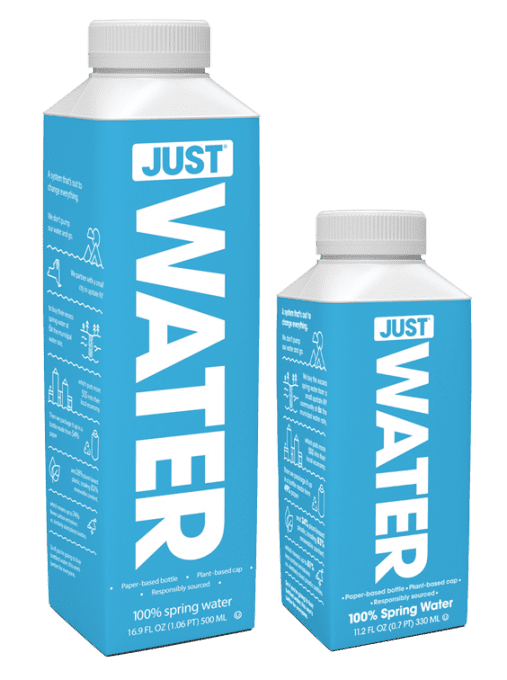
JUST Water’s first major move was reconceiving the water bottle. Instead of using petroleum-based (or even recycled) plastic, JUST Water comes in a carton that is nearly 90% plant-derived materials. Over half of the carton is made from responsibly harvested paper certified by the Forest Stewardship Council, while its cap and shoulder includes plant-based (predominantly sugarcane) plastic. The remaining materials (less than 12 percent) are the aluminum and BPA-free plastic film used for protective packaging.
Additionally the unique cartons provide other environmental benefits. The company can transport 1.5 million cartons on one truck because they are shipped in flat rolls; it would take 13 trucks to ship the same number of plastic bottles. This space-saving method has kept over 4 million pounds of carbon being released into the atmosphere, which represents a 74 percent reduction in carbon emissions over plastic bottles, according to JUST’s estimates.
The company has taken a similar eco-positive approach in producing its water. Sustainably sourced, JUST Water is spring water from the Adirondack Mountains and it is rich in naturally occurring pH and mineral content. JUST Water’s method of obtaining and bottling water is handled more efficiently than the process of purifying tap water, which tends to be a waste of water and energy.
In 2018, JUST launched flavored Infused Water line, which follows a similar simple, natural formula. The quartet of flavors – Lemon, Blackberry, Mint, and Cherry – contains no calories, no sugar, and nothing artificial. Each flavor blooms through organic fruit essences that are achieved by boiling organic fruit or herbs in water, capturing the steam and converting it back into water.
JUST Water has experienced growing success. By 2019, the company reached a $100 million valuation and was available in a dozen countries. “We doubled our business last year (and) we tripled the business this year,” JUST Water CEO Ira Laufer to Fast Company in 2019.
Growth continued last year as JUST Water purchased more bottling machines for its US facility in upstate New York, tripling its production capacity from 35 million bottles a year to over 100 million. The pandemic-based dip in sales from amusement parks, zoos, and the travel industry was more than balanced out by the big jump (also pandemic-related) in JUST Water’s retail sales.
The folks at JUST Water, not surprisingly, have other concerns besides the bottom line. In the past two years, the company has partnered up in two significant charity campaigns. 2019 saw them pairing with Allbirds shoes for a limited edition sneaker line that sent 100 percent of the sale proceeds to the Amazon Forest Fund. The AFF was an appropriate organization for this benefit effort because Allbirds utilizes trees certified by the Forest Stewardship Council in their sustainable products, just as JUST Water does.
In 2020, JUST WATER and Pangaia teamed up for a sustainable apparel “capsule,” which contained such Pangaia products as Seaweed Fiber T-Shirt, hoodie, shorts and track pants that all came in JUST Water’s well-known shade of blue. Proceeds from this collection’s sales benefited #TOGETHERFUND x WJSFF, a global fundraising effort supporting justice and global COVID-19 relief work.
Beyond JUST Water’s charitable programs, Jaden Smith has become deeply involved in another humanitarian project also involving water. Wanting to help out Flint, Michigan, residents during the water crisis that surfaced in the mid-2010s, Jaden looked for a solution that was more long-term than simply sending cartons of water to the city. Jaden and Drew FitzGerald, his partner in the nonprofit 501CThree, got involved with an eco-minded Michigan-based engineer named Jaron Rothkop who had designed a mobile water filtration system.
Dubbed the Water Box, this portable unit generates clean drinking water at the rate of 10 gallons per minute. 501CThree also teamed up with Flint’s First Trinity Missionary Baptist Church to coordinate working with the community. In its first 50 days in Flint, the Water Box distributed more than 5,000 gallons of free filtered water to local residents. On top of the cleaner water, the Water Box resulted in an additional environmental benefit: the water it processed equaled the use of 43,000 single-use 16-ounce (and environmentally damaging) plastic bottles.
Flint now is home to four Water Boxes, and local residents greatly appreciate Smith and his colleagues continued support. Catrina Tillman, the wife of the First Trinity Baptist Church pastor, shared with hourDetroit.com, that “many celebrities have used the Flint crisis for their own public relations (but) Jaden Smith is serious. It’s not over with him and he doesn’t see it as about him. He has shown real commitment.” As of early 2021, the Water Boxes have provided nearly 40,000 free gallons of filtered water to the people of Flint; this number would equal over 300,000 single-use 16-ounce plastic water bottles.
In August, 2020, 501CThree brought a Water Box to Newark, New Jersey, another American city facing a water contamination problem. In its first few months there, the filtering box cleansed around 500 gallons of water (equivalent to 3,6000 single-use 16 oz. plastic bottles). A Water Box also has been installed in downtown Los Angeles at the ReFresh Spot, a community-driven project operated by the local non-profit, Homeless Health Care Los Angeles.
Jaden, who is in his early 20s, told Complex in a 2020 interview, “I just want to give back because it’s the right thing to do. I also have ideas on how to do it. I knew that we could create a filtration system that would send potable water to underserved communities.”
You can discover more about the Water Box by visiting: https://www.501cthree.org/the-water-box/.

